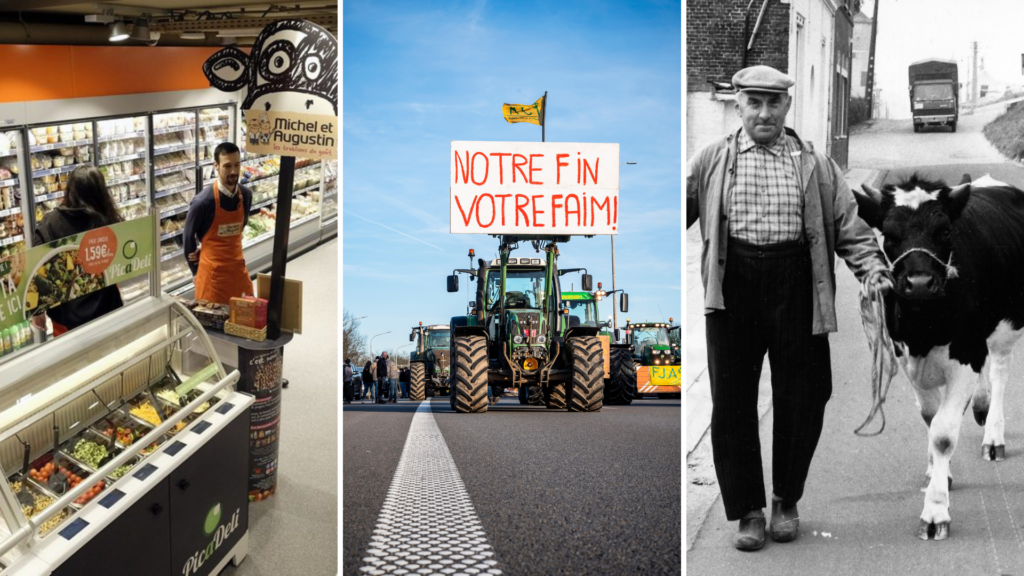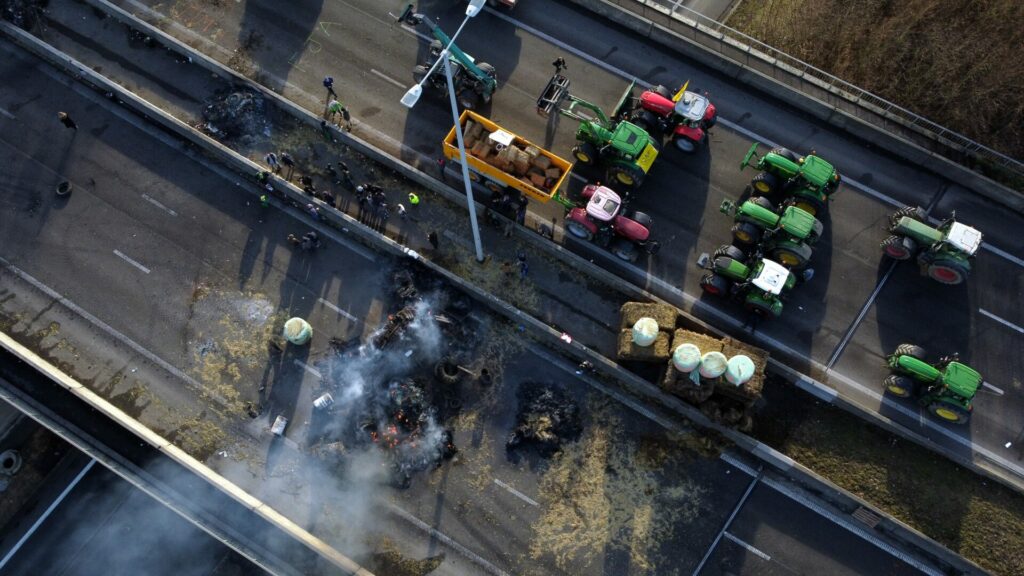If it's the simple life you're after, don't go into farming. This might be one of the key takeaways from the wave of protests that have hit various EU nations as Belgium becomes the latest to see roadblocks and tractors laying siege to public administrations.
The pastoral picture of tending the land and living off nature's bounty has been consigned to novels of another century; agriculture in modern Europe is on the front line of many of the crises that rock the world we live in. Yet at the same time, the gap between public perception and the reality of farming has grown, with modern supermarkets putting convenience and cost at the centre of their business model.
Rare are the occasions where we find shopping aisles without the usual array of products from all corners of the world. Only at the height of global tensions (or a pandemic) are shortages seen on the shelves. These freak instances aside, our system of supply has truly conquered the natural order, so that "seasonal produce" stays on the menu year-round. Supermarkets look more or less the same no matter what month you enter.
But with agriculture increasingly facing environmental, economic, and social pressures that extend beyond their local milieu, the sector's sustainability is looking less certain every day. In fact the model has already been pushed away from the traditional conception as farmers realise they don't stand a chance in the long term unless they go big.
For Wallonia, this has seen the number of farms fall from 29,000 in 1991 to 13,000 in 2021, though the average size of farm in the region has more than doubled (about 60 hectares today). Besides the move away from small-scale operations, even more striking is the complete absence of a younger generation in the business: less than 5% of farmers in Wallonia today are under 35.
Figures such as these highlight the industry's plight. But although there are common grievances that unite the farming community across the bloc, regional disparities also dilute the impact of protests; the concerns of Flemish farmers are on several points distinct to those in Wallonia, dissipating their frustrations and making it easier to pass the buck to national or super-national policymakers.
Whilst traffic is held up on several of Beglium's main motorways, many are asking what will come of their efforts, with the EU's import laws and Common Agricultural Policy being the root of discontent. On this front, the EU last week launched the Strategic Dialogue on the Future of Agriculture, though whether this can assuage the immediate anger is unclear.
We can hear the concerns of farmers, but who will respond? Let @Orlando_tbt know.
Belgium in Brief is a free daily roundup of the top stories to get you through your coffee break conversations. To receive it straight to your inbox every day, sign up below:
1. 'This exploitation cannot continue': EU urged to ban unpaid internships
In 2023, nearly half of interns (45%) were unpaid and 67% didn't have full access to social protection, according to the latest data. Unions are now pushing for a law banning unpaid internships across the EU, before the upcoming elections "shake everything up again". Read more.
2. Farmer protests: Several key roads, including to Brussels, still blocked by tractors
Farmers' protests continued on Tuesday, with tractors blocking major roads up and down the country, which is disrupting another morning rush hour. Read more.
3. Belgium records higher rate of medical mistakes during hospital stays
French-speaking Belgians are significantly more likely to experience a negative incident during a hospital stay than patients in 15 other countries surveyed under the same OECD model. Read more.
4. ‘Utterly appalling’: Belgian prisons reach record number of inmates
The number of people detained in Belgian prisons reached 12,012 on Monday, a new record. Trade unionist Eddy De Smedt (VSOA) says overcrowded conditions are "utterly appalling" for inmates and staff alike. Read more.
5. Paris less popular among Belgians for summer break due to Olympic Games
The French capital is usually a top destination among Belgians booking a short trip, but due to the high costs of hotels as a result of the Olympic Games, their interest has shifted to other cities. Read more.
6. Dutch confectioner Tony's Chocolonely posts record sales
Dutch confectioner Tony's Chocolonely saw a record turnover of €150 million for the financial year 2022-2023, nearly a quarter higher than the previous year 23.2%. Read more.
7. Hidden Belgium: La Grande Poste
The central post office in Liège was a sad sight for 20 years. Known as La Grande Poste, the Neo-Gothic building was completed at a time when Liège was one of the world’s great industrial cities. Read more.


